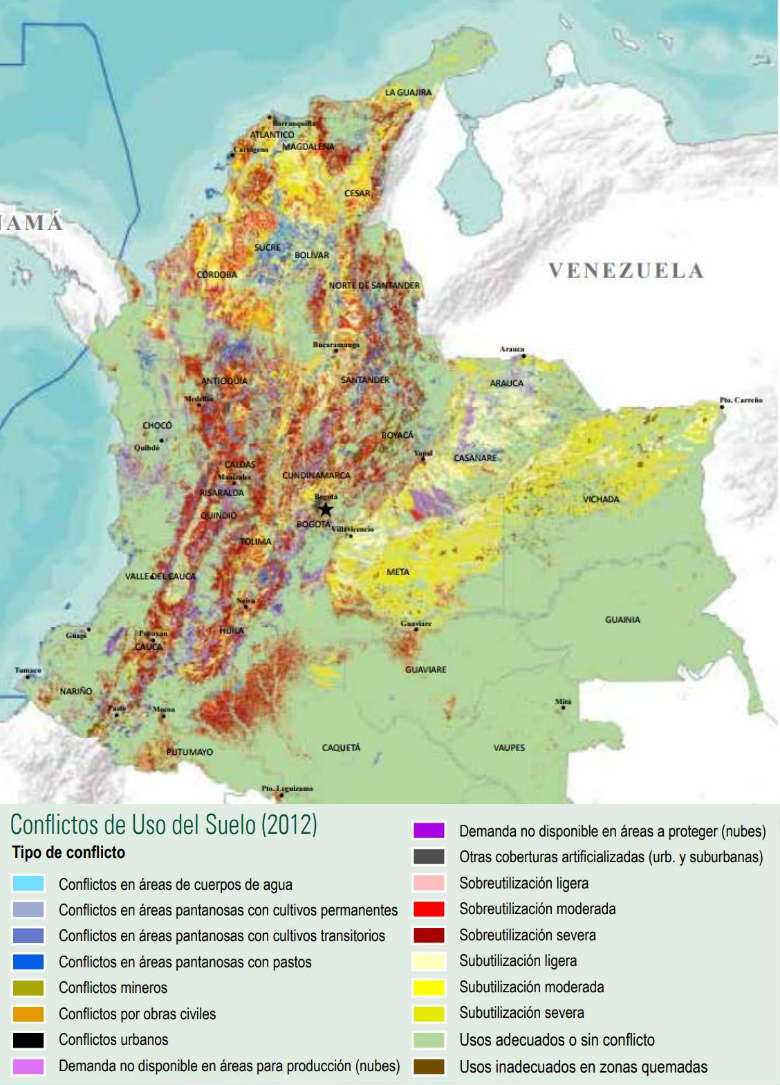Almost half of Colombia’s ecosystems is threatened and almost a quarter is in a critical state as the country’s environment is facing unprecedented destruction, according to an alarming report by the World Wildlife Federation (WWF).
Of the 85 ecosystems identified by the WWF, 17 are in danger and 20 are in a critical state, the environmental organization’s “Colombia Viva” report said.
The state of the ecosystems threatens the survival of more than half of the country’s animal species and more than one third of the plant species in Colombia, the country with the world’s second largest biodiversity.
World Wildlife Federation
The deteriorating state of the country’s natural environment is also becoming a threat for the future of humans as pollution, agriculture and deforestation are affecting the country’s water sources.
The disappearing of these water sources would not just damage the country’s development, it threatens people’s food and water supply.
World Wildlife Federation
The environmental organization urged the creation of policies that do not just protect existing ecosystems, but restore damaged ecosystems.
World Wildlife Federation
WWF Colombia director Mary Louise Higgins additionally urged to fortify government to effectively execute environmentally-friendly policies and “end activities like illicit crops, illegal mining and the extraction and sale of wood.”
Land use conflicts in Colombia (2012)
Last but not least, the environmental organization urged the private sector to formulate business policies that are in sync with the national environment.
World Wildlife Federation
According to Higgins, Colombia’s ongoing peace process with the FARC, the rebel group that until last year controlled almost a third of the country’s national territory, provides the opportunity to act.
The execution of environmental recovery projects would fit in ongoing efforts to stimulate the countryside and could provide reintegration projects of disarmed FARC combatants, according to the WWF director.



